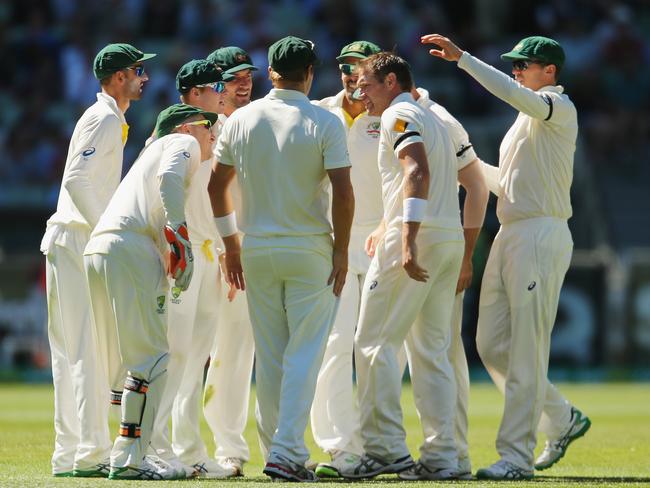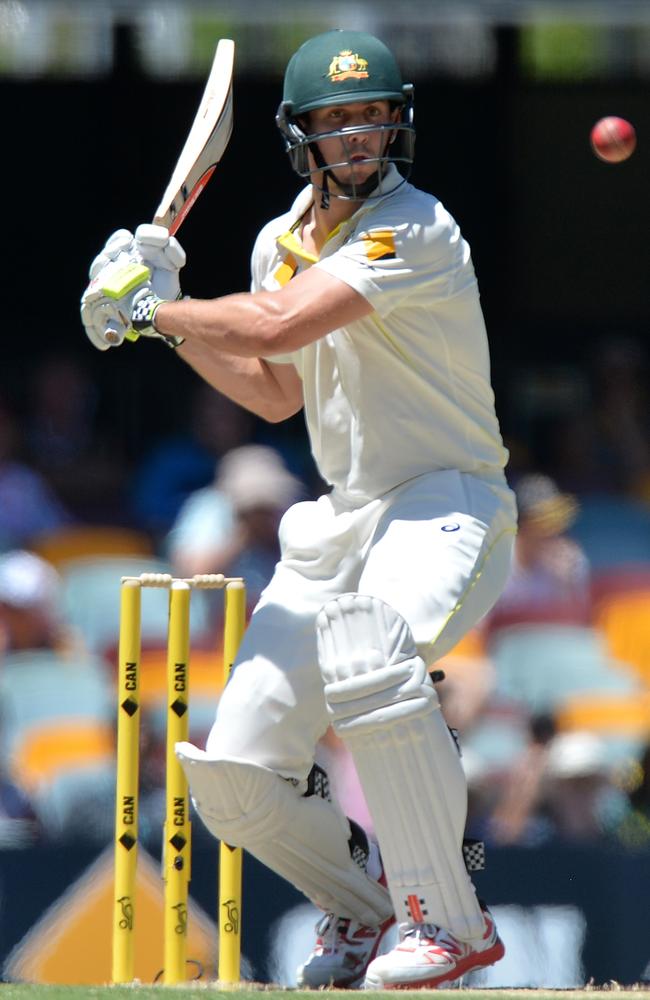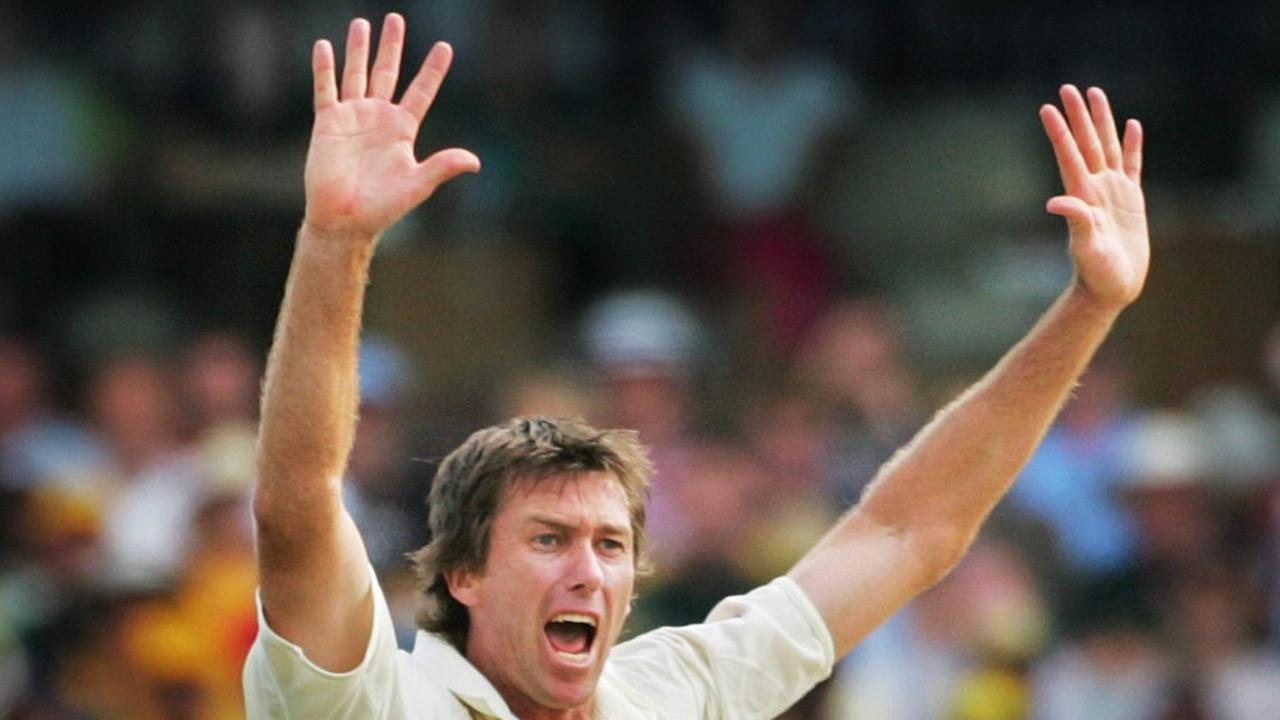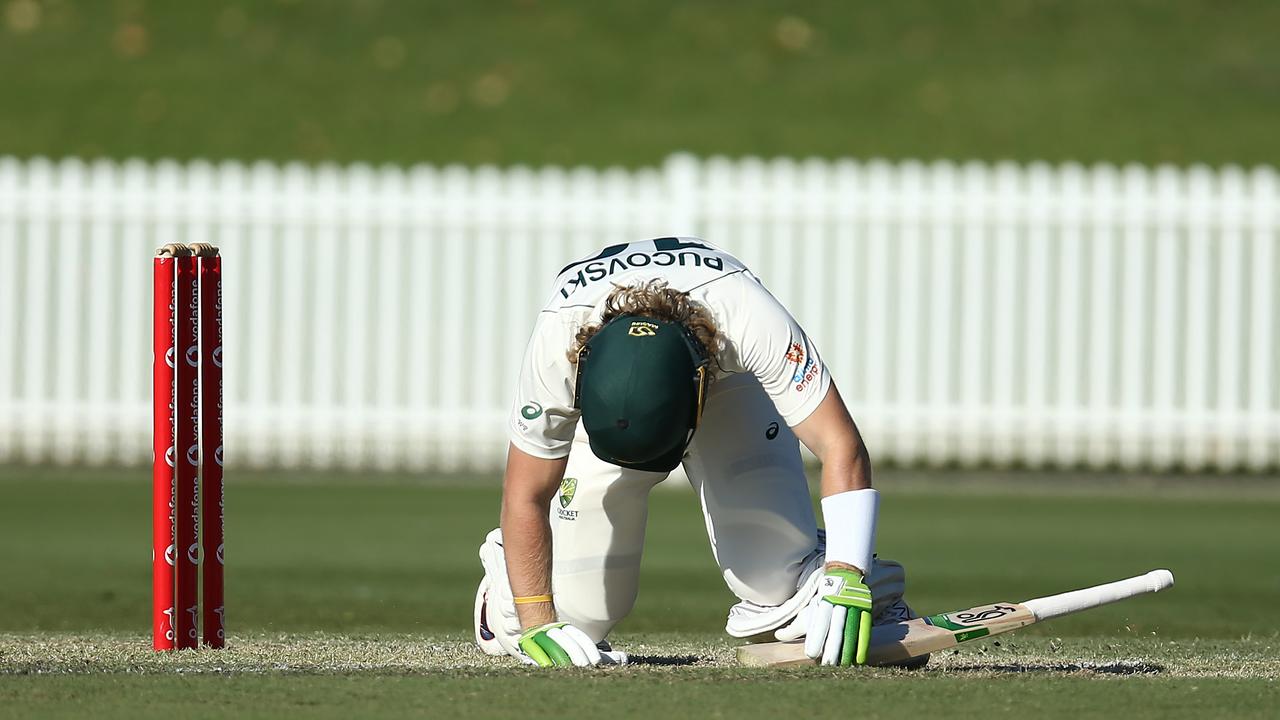Australian selectors must perfect juggling act before 2015 Ashes, writes Ian Chappell
A TEST cricket selector’s job is like a juggling act. As hard as it is, Australian selectors must get the balance right before the 2015 Ashes.

Opinion
Don't miss out on the headlines from Opinion. Followed categories will be added to My News.
A TEST cricket selector’s job is like a juggling act; the ball that’s constantly in the air is the current series and the other two are the future.
In this case, the ball in the air is the team to beat India — a job that’s well on the way to completion — those in hand are options for the 2015 Ashes.
The secondary task is the more difficult because it requires making assessments on potential and also testing your nerve. How big a risk are you willing to take?
REPORT: SMITH MAKES AUSTRALIA’S DAY
HINDS: BATTING DEPARTMENT STOCKS LOOK THIN
Being an Ashes series adds an extra degree of difficulty; if the odd Test is lost to India or another nation no one is happy but they get over it. Lose a Test to England and every Australian is angry and, heaven forbid, lose a series and with it the urn, and the nation is up in arms.
The selectors have tipped their hand in the past few weeks. The selection of Mitchell Marsh as a batting all-rounder and then, following his injury, Joe Burns to replace him in the order, is a hint the selectors are looking to youth.

This follows a period where older, experienced players like Ed Cowan, Rob Quiney, George Bailey and Chris Rogers were given preference. Actually Rogers, by virtue of his stubborn consistency, has a foot in both camps, as he’s proven to be the ideal foil for David Warner and has a role to play in the Ashes series.
The choice of batsmen for the Ashes series is clouded by Michael Clarke’s injuries.
And as if that isn’t a big enough worry, the selectors have concerns over the Marsh brothers and Shane Watson, who have an injury history that would fill a doctor’s filing cabinet.
In a perfect world, the selection of the batting line-up for next July in Cardiff is pretty simple: Warner, Rogers, Watson, Clarke, Smith and M Marsh. That’s a strong line-up with the ideal balance of styles ranging from Warner’s blitzkrieg approach through to Rogers’ stubborn resistance.
The balance is further strengthened by Marsh’s ability to hit powerfully if the table has been set by those preceding him. He can accelerate the scoring rate with a view to increasing the chances of victory.
If all those batsmen are fit, it leaves Shaun Marsh, Burns and Usman Khawaja fighting for a role as reserve batsman. If Burns can improve on his moderate debut, he might take pole position because he gives you cover for both an opener and middle-order player.
The uncertainty is Clarke.
Take Clarke out of the line-up and it has an unhealthy reliance on the prolific pair of Warner and Smith.
It would also place extra pressure on both Watson and Shaun Marsh to provide consistency rather than just maddeningly frustrating cameos. Watson seems to suffer from an uncertainty about his role. There was a time, when he was doing well, he was adamant he was an opening batsman.

However, a few failures later and others half-convinced him he was an all-rounder who should bat in the middle-order.
A successful batsman knows his place; he has a spot in the order he wants to make his own and, once established, he won’t give ground without an enormous struggle. He may bat somewhere else in the best interests of the team but not before he makes it abundantly clear his preference in the order. Too often Watson is prepared to have an each-way bet.
It’s easy to see why Shaun Marsh keeps enticing the selectors; at his best he looks really skilful. However, too often a glittering innings promising riches is followed by an injury or a maddening run of outs. His fluctuations in form indicate a player who quickly loses confidence and has failed to come to terms with his game. Now would be the right time for him to have a chat with Smith about building confidence and having a better understanding his own game.
Thanks to some senseless tactics from India and his combative nature, Brad Haddin has silenced any doubts about his batting.
Haddin is in the twilight of his career and his batting, like the light at that time of day, is fading slowly, but he’s a must for the Ashes series. His keeping is still immaculate and his experience and cricket savvy are indispensable, especially with uncertainty surrounding the captaincy.
In this period of flux, Australia will remain highly competitive because the bowling is strong and the captaincy, whether it’s Clarke or Smith, is in capable hands. The one concern is those balls in hand; the batting future.


